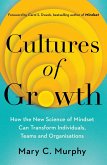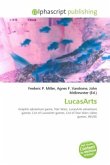High Quality Content by WIKIPEDIA articles! Agnotology, formerly agnatology, is a neologism for the study of culturally-induced ignorance or doubt, particularly the publication of inaccurate or misleading scientific data. The term was coined by Robert N. Proctor, a Stanford University professor specializing in the history of science and technology. Its name derives from the Neoclassical Greek word, agn sis, "not knowing" (confer Attic "unknown"), and logia. More generally, the term also highlights the increasingly common condition where more knowledge of a subject leaves one more uncertain than before. A prime example of the deliberate production of ignorance cited by Proctor is the tobacco industry's conspiracy to manufacture doubt about the cancer risks of tobacco use. Under the banner of science, the industry produced research about everything except tobacco hazards to exploit public uncertainty. Some of the root causes for culturally-induced ignorance are media neglect, corporate or governmental secrecy and suppression, document destruction, and myriad forms of inherent or avoidable culturopolitical selectivity, inattention, and forgetfulness.
Bitte wählen Sie Ihr Anliegen aus.
Rechnungen
Retourenschein anfordern
Bestellstatus
Storno








